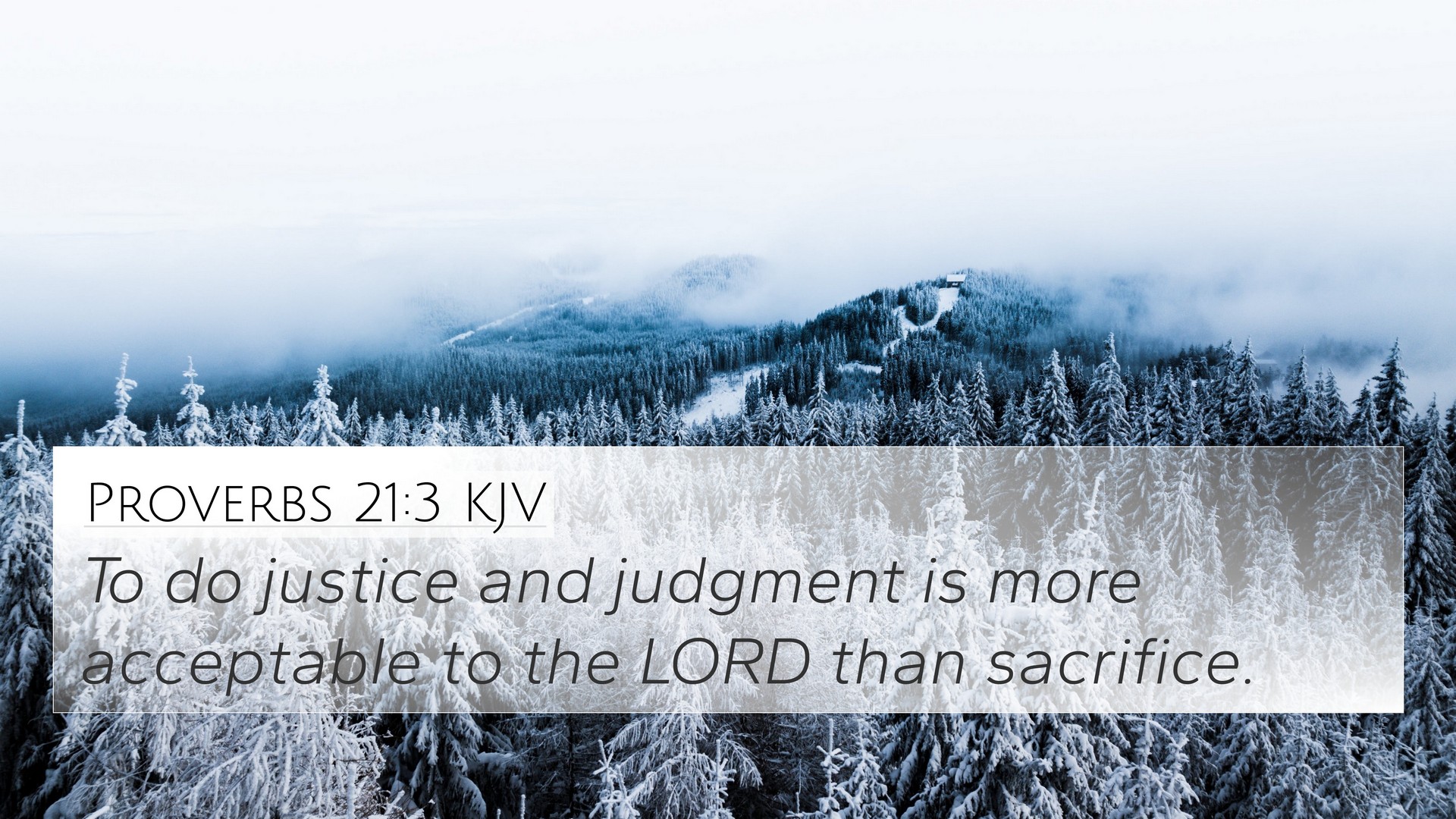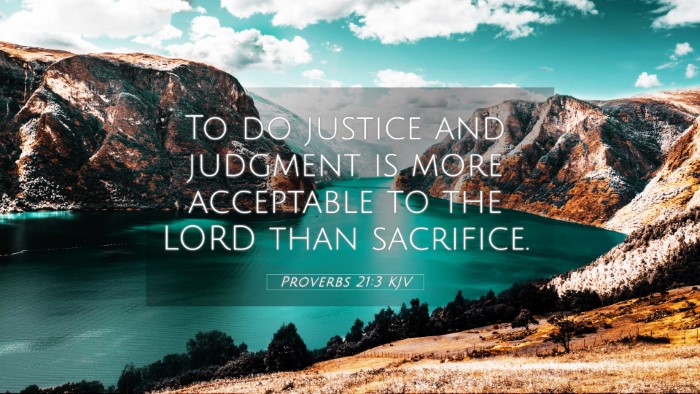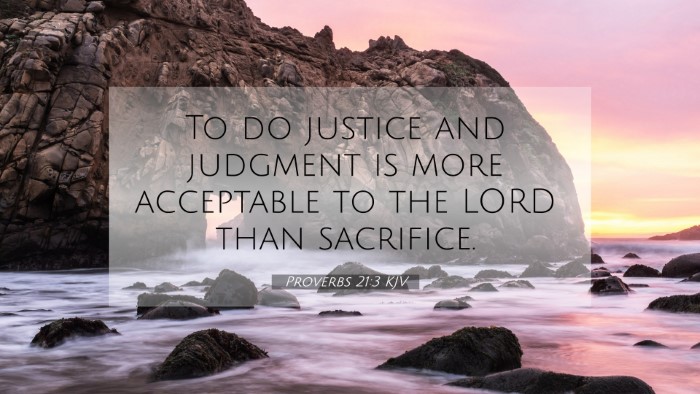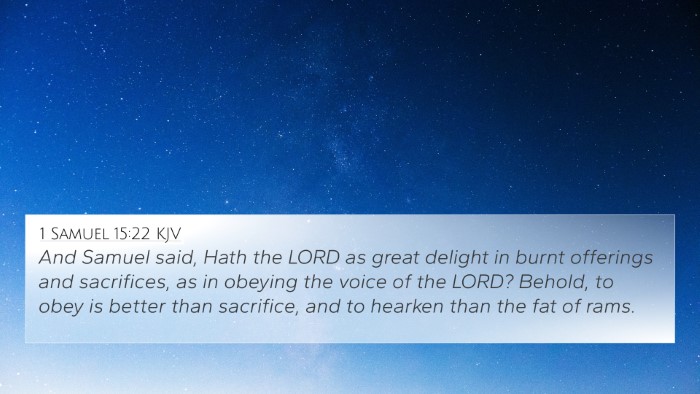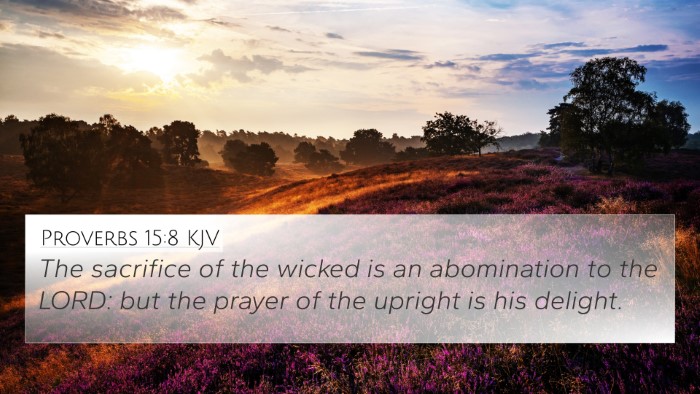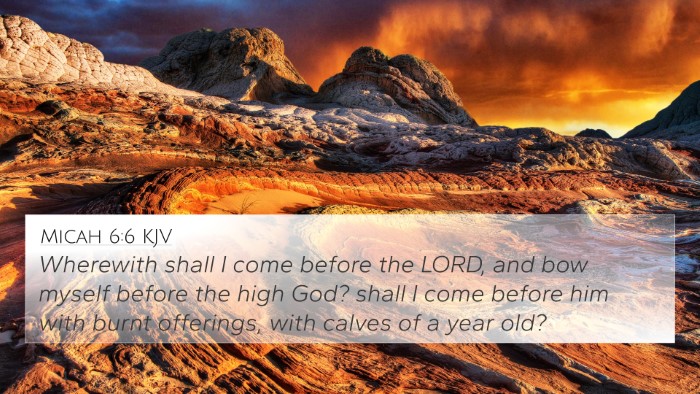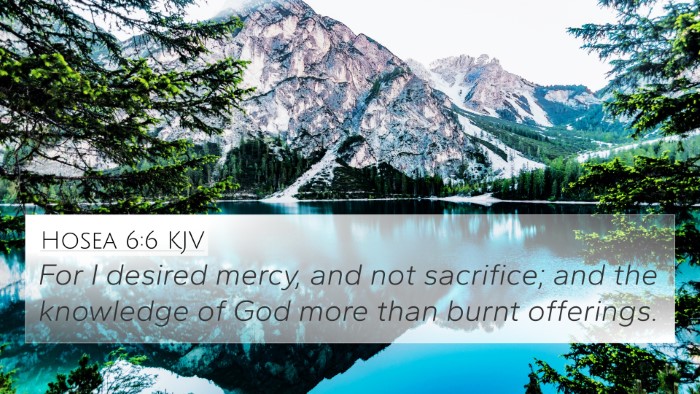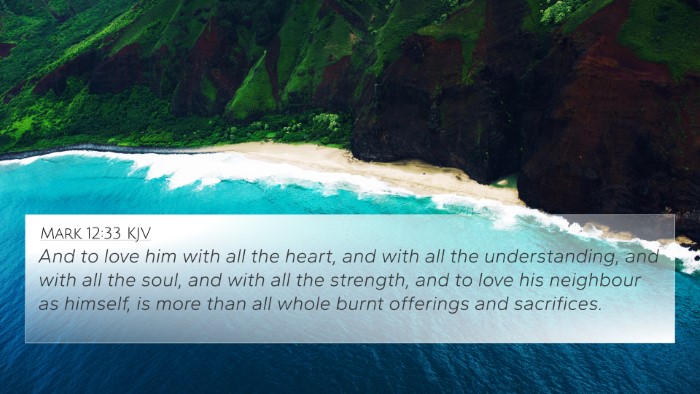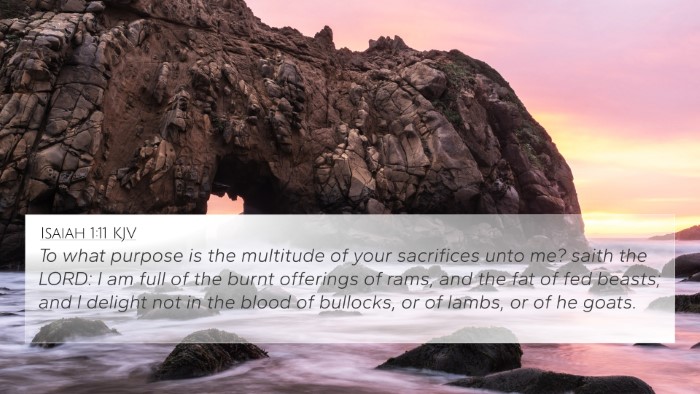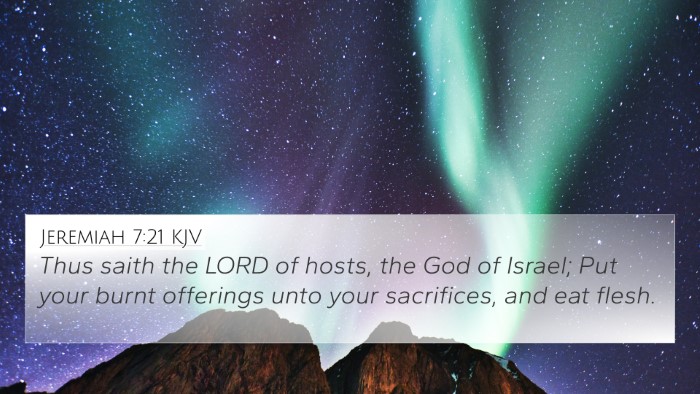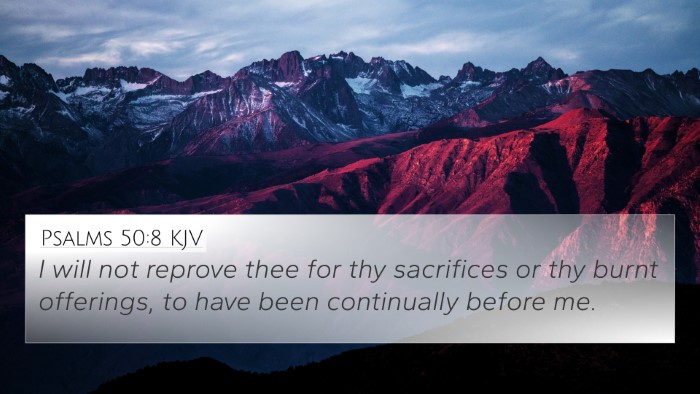Understanding Proverbs 21:3
Proverbs 21:3 states: “To do righteousness and justice is more acceptable to the Lord than sacrifice.” This verse highlights the priority of moral and ethical behavior over mere religious rituals.
Summary of Insights
This verse emphasizes the importance of righteousness and justice in the eyes of God. Public domain commentaries provide various insights:
- Matthew Henry: Henry argues that true worship and devotion to God consist not solely of sacrifices but in living a life that reflects God's justice and righteousness. He notes that God values the condition of the heart and the moral choices made in daily life.
- Albert Barnes: Barnes highlights that mere external compliance with religious practices is insufficient if one does not embody the principles of justice and equity. He reflects on how such behaviors align with God's character and expectations.
- Adam Clarke: Clarke suggests that righteous acts, along with justice towards one's fellow beings, carry more weight and significance in the sight of God than any types of sacrifices or offerings made. He provides historical context, emphasizing how the ancient Israelites often confused ritual with righteousness.
Key Themes
The key themes that emerge from Proverbs 21:3 include:
- Righteousness: Aligning one's actions with moral principles.
- Justice: Fair treatment of others in accordance with God's law.
- Faith and Works: The interplay between belief and moral actions.
- Sacrificial Rituals: Critique of empty religious practices without a corresponding ethical life.
Bible Verse Cross-References
Proverbs 21:3 connects with several other scripture passages, underscoring its themes:
- 1 Samuel 15:22: "Has the LORD as great delight in burnt offerings and sacrifices, as in obeying the voice of the LORD?" This verse stresses the importance of obedience over sacrifice.
- Micah 6:8: "He has shown you, O man, what is good; and what does the LORD require of you but to do justly, to love mercy, and to walk humbly with your God?"
- Isaiah 1:11-17: Discusses the Lord's disdain for empty religious rituals without moral actions and advocacy for justice.
- Matthew 5:23-24: Illustrates the necessity of reconciling with fellow humans before offering gifts to God.
- Luke 11:42: "But woe to you Pharisees! For you tithe mint and rue and all manner of herbs, and pass by justice and the love of God."
- James 1:27: Defines pure religion as caring for orphans and widows while keeping oneself untainted by the world.
- Hosea 6:6: "For I desire mercy and not sacrifice, and the knowledge of God more than burnt offerings."
Connecting Themes and Cross-Referencing
The themes of righteousness and justice in Proverbs 21:3 are echoed throughout the Bible, creating strong inter-Biblical dialogue. By employing tools for Bible cross-referencing, one can observe links between various scriptures and their related themes. Understanding these connections provides deeper insight into the Biblical message regarding ethical living.
How to Use Bible Cross-References
When exploring Proverbs 21:3 and its connections, consider:
- Employing a Bible concordance to locate verses related to the themes of justice and righteousness.
- Utilizing a Bible cross-reference guide to find verses that complement and enhance the understanding of this scripture.
- Engaging in cross-reference Bible study methods to systematically investigate related themes.
- Exploring Bible reference resources that aid in identifying connections between Old and New Testament teachings.
Conclusion
Proverbs 21:3 serves as a crucial reminder of God's desire for righteousness and justice over mere ritual worship. By utilizing cross-referencing methods, we gain clearer insights and a comprehensive understanding of the Christian faith’s core values. This approach not only strengthens personal interpretation but also enhances sermon preparation and Bible study.
